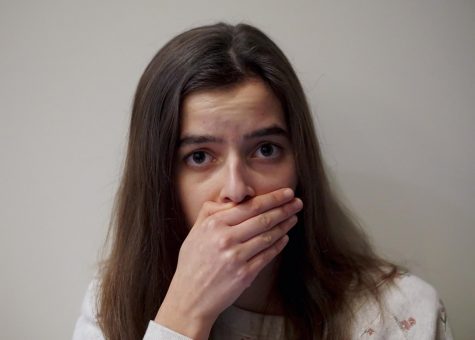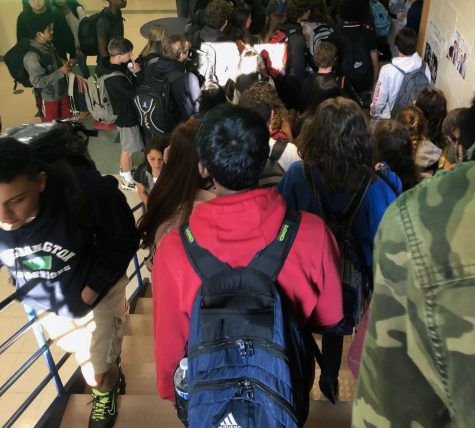Practice makes Perfect: The PSAT and the Best of Standardized Tests
A state mandated math final about to be taken to prepare students for the next year of life. Unfortunately, those grades never helped the students as they went on to dropout of school and pick up jobs at the local McDonald’s. Image from iStock.
The following is a satirical article and is not actual news. The piece reflects the opinions of the author and not the Weddington Witness as an organization.
The leaves are changing colors, the cold fronts are coming in, and the stress emanating off of students is so thick it can be cut with a katana. Fall is here. While many think the beginning of fall is marked by the cool weather, the changing leaves, or even the equinox itself, the true harbinger of fall is here: the PSAT.
For those unfamiliar with the term, the PSAT is a practice SAT test administered every fall to every sophomore in the country, and to juniors who qualify for NMSQT. The PSAT is also administered by the College Board, the same organization that administers the SAT to every junior in the spring. With this foundational knowledge in mind, we can discuss the potential improvements to this age-old exam.
Standardized tests are a staple of the public school year, with every NC course having a state final and teachers being required to make a teacher exam if the state does not provide one. www.wbur.org (Note: this link is only accessible through a non-school computer) found that “[in] a study by the Council of the Great City Schools, students spend 20 to 25 hours a year taking standardized tests, but it’s unclear how much time they spend preparing for those tests”. In my oh so humble opinion, I really think that this is not enough time and that students absolutely need to be tested more if they plan on surviving in the real world, which is, of course, notorious for its standardized testing.
One thing must be established at this point: standardized tests are the perfect way of measuring ANY one person’s intelligence. Everyone knows that in an experiment you account for every variable you can, and standardized tests account for the most uncontrollable one, creativity. Creativity has been a thorn in public education’s side since its institution. This dark era of uncontrollable creativity came to a close in 1908 when the first standardized test was administered, and America’s schools have only improved since then. When the SAT was first administered in 1972, the average math score was 509, and average reading was 530. In 2019, the average math score was 528 and reading was 531. That’s an incredible difference, especially in the reading section.
Now of course these massive differences in scores could only be attributed to the genius of the test, but what about the idea that there is another factor- is it possible something else is at play here? While it can’t be, let’s play devil’s advocate for a bit. Something that public school is often called is formulaic. In recent years however, many so called “professional educators” have proposed other ways of learning, and even worse, changing how standardized tests operate. The National Education Association (NEA) has proposed changing when students take tests and how many. Currently, under the No Child Left Behind Act signed by George W. Bush, standardized testing takes place once a year from third grade through eighth grade, and then in high school as well. The NEA has proposed that tests are only taken from sixth to ninth grade, and from tenth to twelfth grade students would be taught in the style that most closely matches their learning process, along with other students of a similar mindset.
While this proposal seems to be well founded, well researched, and ultimately a better alternative for the students, the suggestion overlooks one very important variable: how would it affect the government? If standardized testing is removed, the government would have to spend more money towards education in order to facilitate new class styles. This would throw all of our great nation’s democracy into chaos, not to mention our nation’s budget! Alas, that isn’t the worst of it- tests would have to be completely restructured to take into account student’s creativity.
I leave you with this- when considering tests such as the PSAT, the SAT, and the ACT, and all the final exams out there, remember that they are that way for your own good, and any variation would result in uncontrollable chaos.












